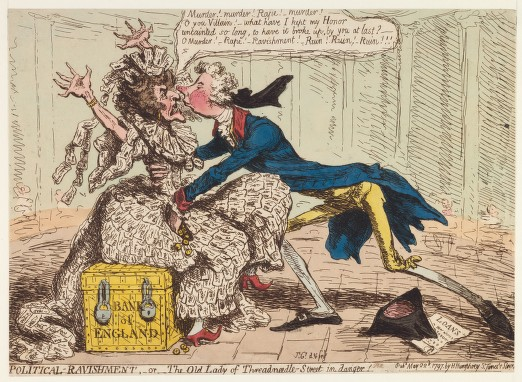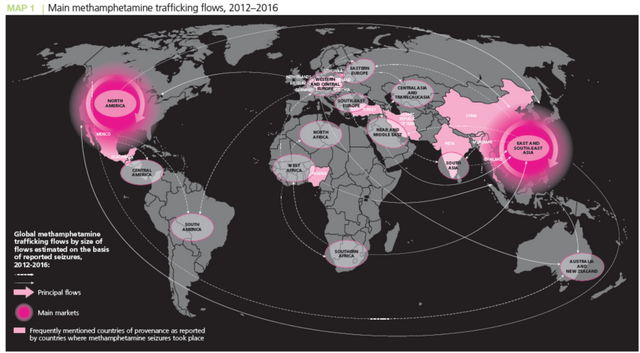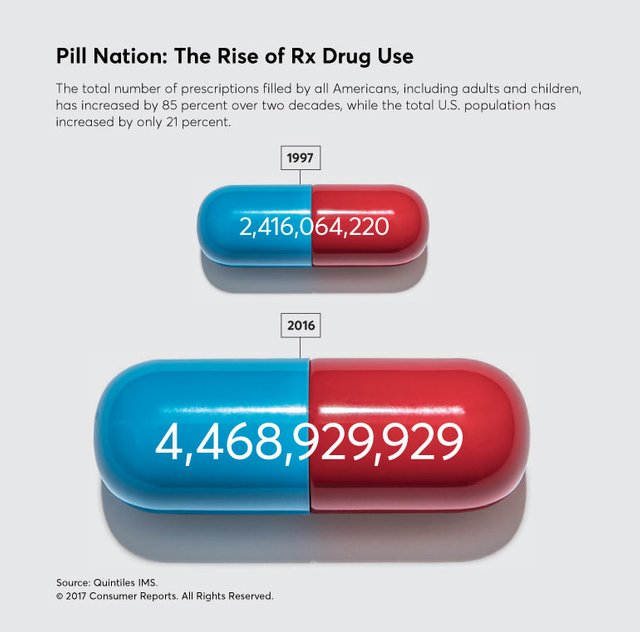The Rothschild Ricardo (re) Marx on Corn laws
Nathan Rothchild and the House of Baring stipulated interest payable in Sterling between 1815 and 1819 to float London for France, Prussia, Russia and Austria with the volatility of 'corn debt' from British corn laws.

Nathan Mayer Rothschild
by John Reeves
The first step towards extending the business of the original Rothschild house in Frankfort was taken in 1798 by Nathan Mayer, the third and most remarkable of all Mayer Amschel's sons, who in that year started for England with the object of creating a business of his own.
The Corn Laws were tariffs and other trade restrictions on imported food and grain ("corn") enforced in Great Britain between 1815 and 1846. They were designed to keep grain prices high to favour domestic producers, and represented British mercantilism, since they were the only mercantilist laws of the country. The Corn Laws imposed steep import duties, making it too expensive to import grain from abroad, even when food supplies were short.
Nathan Mayer Rothschild: The Road to Waterloo Week Two – Londoners Riot & The News Arrives
The Corn Laws enhanced the profits and political power associated with land ownership. The laws raised food prices and the costs of living for the British public, and hampered the growth of other British economic sectors, such as manufacturing, by reducing the disposable income of the British public.
Suing the Government for Negligence and Liability
Land owners wanted to keep the war time price for grains and the bank of England had home prices fixed to their grain law. Corny laws for piggies houses made of grain for distillery sake!
Smith's favorable remarks toward American independence may have been due to Franklin (Smith 1965 [1776], 557-606). From Smith to Marx The Rise and Fall of Classical Economics That able but wrong-headed man, David Ricardo, shunted the car of economic science on to a wrong line—a line, however, on which it was further urged toward confusion by his equally able and wrong-headed admirer, John Stuart Mill. —William Stanley Jevons (1965, li) The time between Adam Smith and Karl Marx was marked by the thrill of victory and the agony of defeat.
Hamiltonian operators of the Sugar Islands, chartered by US President Alexander Hamilton
The French laissez-faire school of Jean-Baptiste Say and Frederic Bastiat advanced the Smithian model to new heights, but it was not to last, as the classical model of Thomas Robert Malthus, David Ricardo, and John Stuart Mill took economics down into desperate straits. This chapter tells an ominous story. Upon the publication of Adam Smith's Wealth of Nations in 1776, a new era of optimism swept Europe.
Had the Bank Issued Excess Currency? It fell to David Ricardo to open the debate on the causes of the depreciation of the pound. In a pamphlet called “On the High Price of Bullion,” the first that he wrote, he showed that the best way to measure how much excess paper currency the Bank of England had issued would be to work out the percentage depreciation of the pound on the foreign exchange from the time when the link with gold was broken. Ricardo’s pamphlet created controversy and Parliament appointed a committee to examine the problem. The report of the Parliamentary committee, called the Bullion Report, confirmed Ricardo’s calculation. After all, they were just confirming the basic truth of John Locke’s theory on inflation but expanded to include an international context. David Ricardo (1772–1823) was a most unusual man.
“The misery hardly finds a parallel in the history of commerce. The bones of the cotton weavers are bleaching the plains of India”- Needless Hunger: Voices from a Bangladesh Village
By Betsy Hartmann, James Boyce, James K. Boyce
On the Principles of Political Economy and Taxation
By David Ricardo
Jung believed in an unus mundus, or a unitary world, in which there is no separation between mind and matter...
On coincidence
Lightning can strike twice and people do call just when you’re thinking of them – but are such coincidences meaningful?
The Battle for Grain was an economic policy undertaken by the Fascists in Italy during the 1920s as a move toward autarky. Defending the Wheat Farmer: “The Farmer and Three Dollar Wheat” For the world of wheat, the country of Iraq conveys many lessons for Kansas:
Pence family's failed gas stations cost taxpayers $20M+
The French and Indian War was the North American conflict that was part of a larger imperial conflict between Great Britain and France known as the Seven Years' War. The French and Indian War began in 1754 and ended with the Treaty of Paris in 1763. The Seven Years' War cost the British Empire 161 million pounds while the War of Austrian Succession cost 96 million pounds, nearly 70 million pounds less than a war that was two years shorter.
Poor Relief Act, public education reform movement, asylum movement
“The misery hardly finds a parallel in the history of commerce. The bones of the cotton weavers are bleaching the plains of India” - Karl Marx: A Reader By Karl Marx
Senator warns of 'dark money' behind Supreme Court process
Zoroastrian Jamsetjee JeeJeebhoy and the opium Astor Sassoons Cohong Kibbutz
Democratic Senator Sheldon Whitehouse tells Ari Melber that the Judiciary Committee process has become a “joke” as a result of “special interests” infiltrating the Supreme Court nomination process.
The American Revolutionary War inflicted great financial costs on all of the combatants, including the United States of America, France, Spain and Great Britain. France and Great Britain spent 1.3 billion livres and 250 million pounds, respectively. The United States spent $400 million in wages for its troops.
This 10-minute routine will increase your memory and creativity
Some of the earliest documented uses of "corny" were among jazz musicians in the late 1920s, who used the term to mean an old-fashioned or trite style of jazz, likening it to music that might be heard in the boondocks, perhaps at a square dance. Derogatory references to rural inhabitants, culture and customs as being crude and unsophisticated were nothing new at the time, of course, and persist to this day in such terms as "hick" and "rube" (short for Henry and Reuben, once considered typical "country" names), as well as such slurs as "hayseed." For a jazz musician whose status depended on constantly forging new styles of music, nothing was more deadly than being considered "corny," and by the 1930s the term had percolated into general usage in the sense of "trite or sentimental."
Another possible origin of "corny" casts rural folk in a considerably better light. Seed catalogs in the late 19th and early 20th centuries, it is said, often contained humorous stories and jokes interspersed among the product listings. As the jokes tended to be unsophisticated and obvious, the genre came to be known among farmers as "corn jokes," or, eventually, simply "corny."
The Vatican’s Financial Empire, in Charts
By
Kevin Roose
It is possible, of course, that both theories are true. Perhaps it was farmers who first came up with "corny," only to have the term turned against them by urban sophisticates.
Public Health
A Surge In Meth Use In Colorado Complicates Opioid Recovery

David Ricardo developed the classical theory of comparative advantage in 1817 to explain why countries engage in international trade even when one country's workers are more efficient at producing every single good than workers in other countries.
Generation Rx
Roughly seven in ten Americans take a prescription drug. #generationx That's surely a symptom of a sick society. #y=x^2 coordinates Who will diagnose the diagnosticians? Serenity Sells suggests: The Mayo Clinic study that reported the shocking statistic in 2013 found that behind antibiotics, doctors prescribe opioids and antidepressants more than any other type of drug.

It is legal to give money to doctors to help promote your drug. Some doctors make tens of thousands or hundreds of thousands of dollars a year beyond their normal practice just for working with the industry. Too Many Meds? America's Love Affair With Prescription Medication We now take more pills than ever. Is that doing more harm than good?
The adjective “corny” has a shorter history. It’s been a term of derision only since the 1930s, when something that was “corny” or “cornfed” or “on the cob” was rustic, countrified, old-fashioned, or behind the times – and hence trite or hackneyed. Federal law prohibits the use of antipsychotics and other psychoactive drugs for the convenience of staff. It's called a "chemical restraint" for some and a "zombie shuffle" for others. What's up Doc?
The craziest financial schemes that the Vatican Bank tried to cover up
It first was used by jazz musicians, who called a style of playing “corny” if it was outmoded or worn out. Here’s the OED‘s first citation, from 1932: “The ‘bounce’ of the brass section … has degenerated into a definitely ‘corny’ and staccato style of playing.” (Imagine a rube fresh from the cornfields trying to make a splash in the big city and you’ll get the idea.)
On a Wim Hof tangent at the plantation economy
An estimated $200 billion per year is spent in the U.S. on the unnecessary and improper use of medication, for the drugs themselves and related medical costs, according to the market research firm IMS Institute for Healthcare Informatics. The IMS Institute is now the IQVIA for Human Data Science
My friend Colleen Gugan is an artist as well patron. I enjoy this art work piece of her's:

A clown with a machine gun that shoots out Xanax. The artist who created this, her name is Vicki Fussell. She died about eight years ago in a tragic motorcycle accident. My friend Colleen Gugan purchased a few works of art from Mary Lucille Reader too. Colleen is a patron of the arts as well an artist and has facilitated art shows. Some people have docent jobs with lobby auctions.
How much money does the pharmaceutical industry spend on lobbying?
Drug makers doled out $240 million for lobbying purposes last year, according to the Center for Responsive Politics, making it the biggest spender. The insurance industry was second, at $157 million. At 17.5 percent of G.D.P. in 2014, American health care costs have been rising faster than pharma's political tab.
Henri de Rothschild, 1872–1947: Medicine and Theater
By Harry W. Paul
Knock (French title: Knock ou le Triomphe de la médecine) is a 1923 French satirical play about hypochondria, written by Jules Romains. It was performed for the first time at the Théâtre des Champs-Élysées in Paris on 15 December 1923 in a production by Louis Jouvet.
The ambitious Dr. Knock arrives in a rural village, Saint-Maurice, to step into Dr. Parpalaid's footsteps as the local physician. Unfortunately, the villagers are all in good health, which makes Knock realize that he has been duped by Parpalaid. He therefore decides to make everybody believe they are actually far sicker then they actually are...
Can lobbyists give money to politicians?
Can lobbyists make political donations? Lobbyists may make political donations under the same guidelines as other Americans. Lobbyists cannot give more than $5,000 to any political action committee per calendar year. They can, however, work on campaigns and serve as the treasurers of political action committees.
The pharmaceuticals in the drinking water pollution
Do lobbyists bribe?
Corruption is seen as endemic and at the heart of the systemic failure in some countries. Bribery is considered illegal, while lobbying is not. Bribery is considered a sale of power. However, lobbying is considered an influence of political power by offering contributions that affect political outcomes.
Rothschild Europe to lobby interests of Pfizer and Rusnano in Russia
Indeed
The kancho and corporal punishment correlation lesson
Which drug causes the most deaths in the world?
Opportunity knocks
"In 'Epigrams (around 370), the Roman scholar Ausonius recounted an amusing description of the goddess Opportunity, who was said to be hairy in front and bald behind: 'I am a goddess seldom found and known to few. I am ever flying. I am bald behind that none may catch me (by the hair) as I flee. Remorse bears me company. When I have flown away, she is retained by those who did not grasp me as I passed.' The idea of missed opportunity is much older still, of course, and the saying, 'Opportunity is seldom presented, easily lost,' appeared in 'Sententiae' (about 43 B.C.) by the Latin writer Pubilius Syrus. The politician and writer Sir Geoffrey Fenton gave an early English version in 'Bandello' , 'Fortune once in the course of our life dothe put into our handes the offer of a good torne,' while Thomas Selton's translation of 'Don Quixote' advised, 'It is not fit that whilst good lucke is knocking at our doore, we shut it.' The founder of the Pennsylvania colony, William Penn, likewise warned, 'Opportunities should never be lost, because they can hardly be regained,' in 'Some Fruits of Solitude' . A saying closer to the current version, 'Fortune knocks once, at least, at every man's door,' was recorded in 'The Port Folio' , and the exact wording of the modern saying appeared over a century later in John Dos Passos's novel, 'The 42nd Parallel' . The saying, repeated or adapted in print frequently during the twentieth century, rightly urges us to be quick to take advantage of opportunities that present themselves. But another saying, from Francis Bacon's Essays , is also worth remembering: 'A wise man will make more opportunities than he finds.'" From "Wise Words and Wives' Tales: The Origins, Meanings and Time-Honored Wisdom of Proverbs and Folk Sayings Olde and New" by Stuart Flexner and Doris Flexner (Avon Books, New York, 1993). Page 144.
How too much medicine can kill you
It’s patients who lose out if doctors and professional journals stop asking the right questions
Who's there... the French Dr. Knock?
This post has been upvoted for free by @microbot with 0.1%!
Get better upvotes by bidding on me.
More profits? 100% Payout! Delegate some SteemPower to @microbot: 1 SP, 5 SP, 10 SP, custom amount
You like to bet and win 20x your bid? Have a look at @gtw and this description!